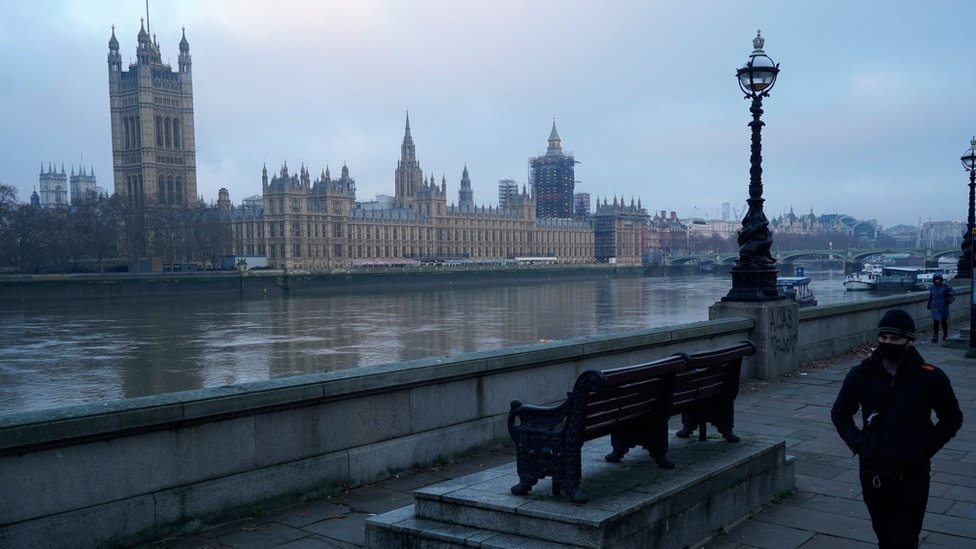Pfizer has criticised the UK’s decision to lengthen the gap between doses of its Covid-19 vaccine, saying the “safety and efficacy” of the new schedule had not been evaluated, as infections and hospitalisations continued to soar across the UK.
The rare intervention by the US pharma company came amid growing controversy over the move, with GPs complaining that they were having to cancel appointments and reassure anxious patients who had previously been told they needed the second dose to keep them safe.
“[Our] study . . . was designed to evaluate the vaccine’s safety and efficacy following a two-dose schedule, separated by 21 days,” the company said.
“The safety and efficacy of the vaccine has not been evaluated on different dosing schedules as the majority of trial participants received the second dose within the window specified in the study design.”
The new dosing guidelines, approved by the UK’s joint committee on vaccination and immunisation and unveiled on Wednesday, allow the second dose of both the vaccine that Pfizer developed with BioNTech, and the newly approved Oxford/AstraZeneca vaccine, to be delivered as much as three months after the first.
The change is aimed at giving a first dose of vaccine to as many people as possible, in an attempt to counter spiralling case numbers caused by a viral variant of the coronavirus that has been found to be much more infectious.
There was fresh evidence on Thursday of the toll the virus is taking in the UK, with a further 964 deaths announced and fresh signs of the strain on hospitals.
NHS Providers, which represents health organisations across the UK, said Covid-19 pressures were intensifying, particularly in London and the south-east, where the surge in admissions over the past few days was “extremely worrying”.
Saffron Cordery, deputy chief executive of NHS Providers, said that as of Wednesday there were 22,713 Covid-19 patients in hospital in England — an increase of more than 27 per cent in seven days. “Over the same period the number of Covid-19 patients in critical care beds rose by 35 per cent,” she added.
Matt Hancock, UK health secretary, on Thursday sought to counter suggestions that the vaccination programme, which the government sees as vital to taming the pandemic, was falling behind schedule.
He said 944,539 people across the UK had had their first dose of a Covid-19 vaccine. “The NHS has a clear vaccine delivery plan and today’s figures show once again how our fantastic NHS has risen to this enormous task . . . Now that we have authorised a second vaccine, we can expect this number to rapidly increase in the months ahead.”
Although partial protection through the vaccine appears to begin as early as 12 days after the first jab, Pfizer stressed that two doses were required to provide the maximum protection against the disease, with an efficacy figure of 95 per cent. Crucially, it said: “There are no data to demonstrate that protection after the first dose is sustained after 21 days.”
The drugmaker said decisions on alternative dosing regimens were in the hands of health authorities and that it remained committed to talking to regulators, but it stressed each recipient should be afforded the maximum possible protection, “which means immunisation with two doses of the vaccine”.
The Medicines and Healthcare products Regulatory Agency said: “The decision was made to update the dosage interval recommendations for the BioNTech/Pfizer vaccine following a thorough review of the data by the MHRA’s Covid-19 Vaccines Benefit Risk Expert Working Group. This expert group concluded that vaccine efficacy will be maintained with dosing intervals longer than 21 days.”
GPs in the UK expressed anger and concern over the switch, saying they had to spend time cancelling appointments for people who had expected to receive their top-up dose in the next few days.
Helen Salisbury, a GP in Oxford, described the situation as “a shambles” and calculated that it would take the network of practices administering the vaccine for her area 193 hours of staff time to reschedule appointments.
She questioned the judgment, and data modelling, behind the decision. “What does the science say? We don’t know.”
The British Medical Association said asking GPs to rebook appointments of tens of thousands of elderly and vulnerable patients was “unreasonable and totally unfair, and practices who honour existing appointments booked for the next few days should be supported”.
In his new year message, Boris Johnson, UK prime minister, hailed the Oxford vaccine, saying it “offers literally a new lease of life to people in this country and around the world”.
However, he warned of “a hard struggle still ahead of us for weeks and months, because we face a new variant of the disease that requires a new vigilance”.
https://news.google.com/__i/rss/rd/articles/CBMiP2h0dHBzOi8vd3d3LmZ0LmNvbS9jb250ZW50L2Q5N2M3MmM1LWVkMjMtNGMyYi1iZjFjLTljYzEwYjIxZjAwN9IBAA?oc=5
2020-12-31 19:13:00Z
52781275240124














